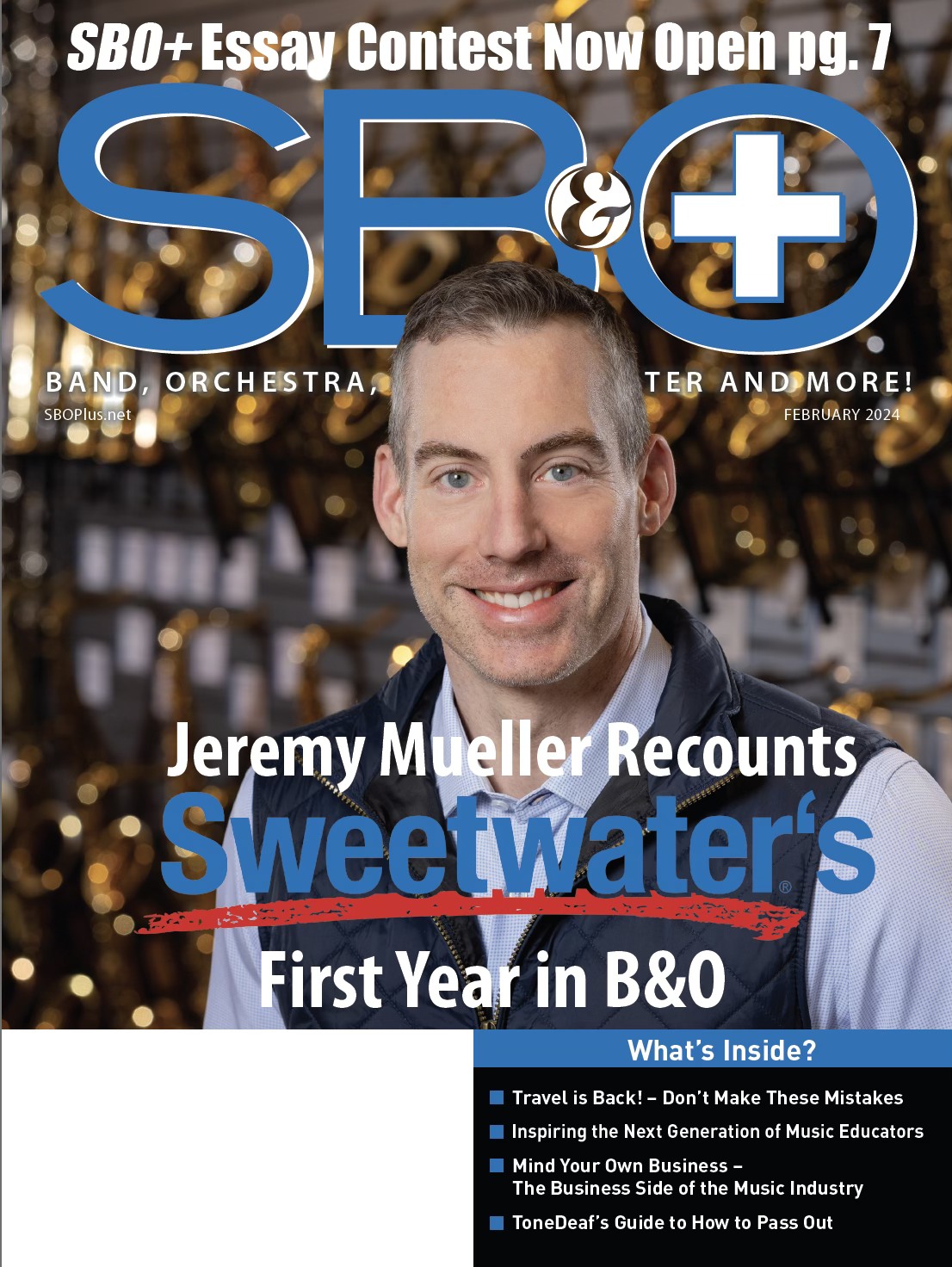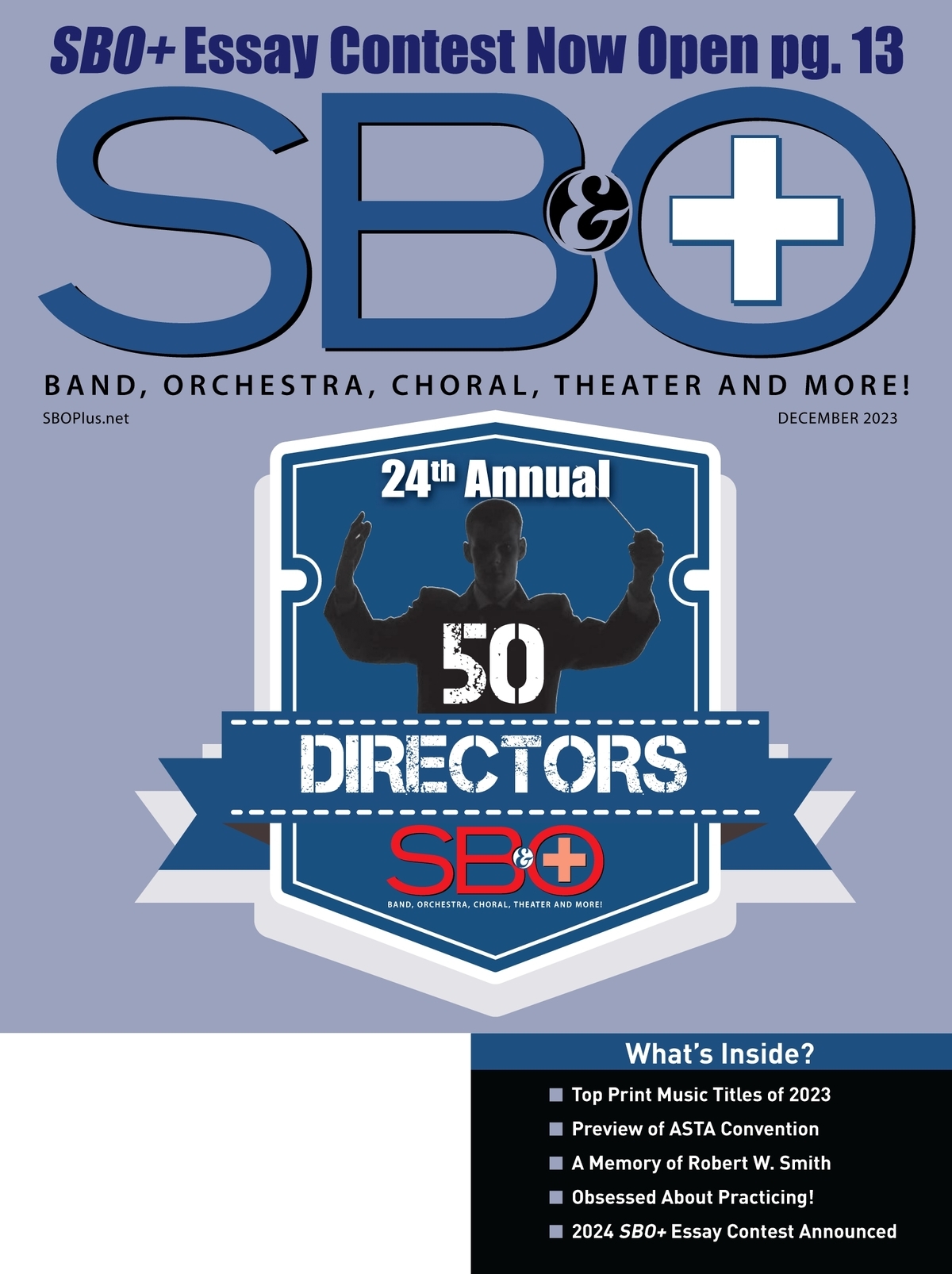EDUCATORS SUBSCRIBE FOR AS LOW AS $0.00! CLICK HERE!
 A teacher who has been in the classroom for several years has probably developed many effective and comfortable routines for choosing repertoire and planning concerts, trips, and rehearsals.
A teacher who has been in the classroom for several years has probably developed many effective and comfortable routines for choosing repertoire and planning concerts, trips, and rehearsals.
Although routines are necessary for the sake of efficiency, it is also possible to fall into a “rut of familiarity” when we stop incorporating new ideas into our program. Fortunately, there are several ways we can reenergize ourselves and our ensembles. Here are some ideas you might consider.
Reenergize Yourself
Students’ attitudes reflect those demonstrated by the teacher. If you lack enthusiasm, you can bet your students feel the same way. Therefore, the first step to reinvigorating your program is to recapture the excitement you had at the beginning of your career. Attend concerts of professional and college ensembles as well as those of the best school bands in your area. Observe their rehearsals to find new ideas for your classroom.
Become active in professional organizations such as the National Association for Music Education (NAfME) and the National Band Association (NBA). Read their publications and attend the conferences. Many experienced directors give up these memberships after several years on the job because they think they no longer need the information or do not have time to participate. Make time. The very best teachers remain involved in these organizations throughout their careers.
You might also consider mentoring a novice director. Their enthusiasm will rub off on you as you guide them through their first few years in the classroom. State chapters of the National Association for Music Education (NAfME), the National Band Association (NBA), and other music organizations may be able to pair you with a new teacher looking for help and eager to learn.
Read Great Books on Teaching and Learning
One of the best and most practical texts I have read is Pathways: A Guide for Energizing & Enriching Band, Orchestra, & Choral Programs (2002) by Joseph Alsobrook (GIA Publications).
Other inspirational books include Teaching Music with Passion (2002), Teaching Music with Purpose (2006), and Teaching Music with Promise (2009) by Peter L. Boonshaft, director of bands at Hofstra University (Meredith Music). In addition to reading professional literature, continue to nurture your own musicianship by playing in a community ensemble, composing or arranging music, or taking lessons on your instrument from a prominent musician in the area.
Choose Different Repertoire
As experienced teachers, we often get into a cycle of repeating our favorite works. Retire (at least temporarily) those tried and true pieces you could conduct in your sleep. Select repertoire from a variety of genres including transcriptions of Western art music, world music, and jazz. In addition, seek out works from the core repertoire that are accessible to your students. Even an advanced middle school band can play Flourish for Wind Band by Ralph Vaughn Williams, Ye Banks and Braes O’ Bonnie Doon by Percy Grainger, or Festivo by Vaclav Nelhybel. If your band is small or without complete instrumentation, try the Flex-Band arrangements published by Hal Leonard. This series includes a wide variety of pieces with flexible instrumentation at the grade 2/3 level that are appropriate for concert or contest.
Consider programming around a theme such as dance, baroque masterworks, Asian folk songs, or American music. A theme can last for just one concert or the entire year. By June, both you and your students will have experienced a particular genre at a deep level. This approach becomes even more valuable when students write and present program notes, develop web sites or PowerPoint presentations, or compose original pieces based on the works studied. A review of state and national (see nafme.org/my-classroom/standards) learning standards will likely spark other ideas for teaching the musical elements and social contexts of your repertoire.
Take the Band to the Next Level
For many teachers, stagnation sets in when they feel their program has developed as far as it can under the circumstances. Although the level of the group may be acceptable, there are always areas that can improve. To what extent does your band reflect a professional standard? Are you satisfied with rehearsal discipline? Does your band play with great tone, intonation, and balance?
Perhaps it is time to attempt a piece at the next grade level or improve the instrumentation of the band by switching a few players to needed instruments. Motivated trumpet players can quickly learn the horn, euphonium, or tuba, while capable flautists or saxophonists can switch to oboe or bassoon.
Encourage students to study privately by distributing a list of qualified instructors in your area. Invite these individuals to lead sectionals or perform a solo with the band so that students have an opportunity to get to know them before signing up for lessons.
Remember that private lessons for one individual benefit the entire ensemble. Perhaps the booster organization could provide scholarships or matching grants for those who wish to study privately.
Make sure you are personally familiar with each teacher, as a bad experience can be detrimental to a student’s motivation and progress.
Ask your music dealer to organize a step-up night where students have an opportunity to try intermediate or professional model instruments. Encourage the dealer to make this an informational meeting where parents can ask questions without getting a high-pressure sales pitch. Be prepared to give parents trustworthy alternatives for purchasing used step-up instruments. You might also arrange for a professional or college group to perform at the event and demonstrate the value of high quality equipment, not to mention the value of practice and commitment. Imagine how your band would sound if every student had a professional model instrument, a private teacher, and a consistent practice routine! Invite a trusted colleague or a prominent college conductor to visit your school for an informal but honest evaluation of your program.
Ask them to observe and conduct rehearsal as well as review past concert programs, festival evaluations, handbooks, and performance schedules. Your guest may notice aspects of your situation that you had not considered and suggest new directions for the future. Understand that this individual will not have a magic solution for instantly fixing everything at once but can probably give advice for making long term improvements. This experience will be particularly effective if you can arrange for your visitor to return periodically to comment on progress and give further guidance. Be open to criticism and willing to implement at least some of their recommendations.
Overhaul the Performance Calendar
Many directors teach the same students for several years in a row. Even for these students, band should be a different experience each year. It is easy to get caught up in the same cycle of performances— marching season, winter concert, festival preparation, spring concert, and graduation. Consider major alterations to this routine from one year to the next. You might decide to participate in different parades or scale back on marching to focus on preparing a fall concert. Perhaps your band could visit a local university for a clinic or attend festival for comments only in order to take greater risks with repertoire selection without worrying about a rating. The band could also plan an end of the year tour that includes a performance at the state capitol or concerts at local retirement homes.
The possibilities are endless. What would you do if you did not have all of your other performance commitments? Make a list and take it to your administration. You might be surprised at how receptive they are when you explain your reasons for change and emphasize the educational goals that will result. Students will also welcome new activities, especially if they can help plan the year.
When soliciting ideas from students, ask them to describe the details of their proposal and explain how it would be valuable for the ensemble.
Renewal is the key to an exciting program that attracts and retains students from the first day of beginning band through high school graduation and beyond. This process begins with a director who constantly seeks ways of improving instruction, raising standards, and increasing their own enthusiasm for music and teaching.
Phillip Hash is the associate professor/coordinator of music education at Illinois State University.






